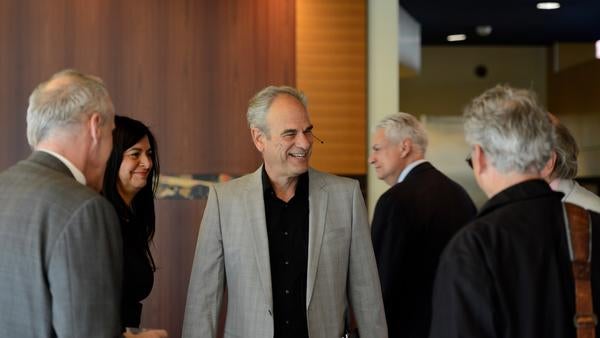
John Martin Fischer, a leading philosopher of free will and moral responsibility, has written two companion essays exploring the ideas of mindfulness and living in the moment, which are often encapsulated in the phrase: “Be here now.”
In the first piece, published by Aeon, Fischer sorts through various theories regarding the “singularity” of the present moment and whether it’s helpful to view the world and our experiences solely through this prism. Readers will also learn how The Flaming Lips and Fleetwood Mac perhaps unwittingly found themselves on different sides of this debate based on the lyrics of some of their biggest hits.
In the second, Fischer writes for The Blog of the American Philosophical Association that the idea of “Be here now” can, and perhaps should, be reoriented when confronting a present moment filled with suffering, such as a 15-month global pandemic that has claimed more than 3.7 million lives around the world.
Fischer, a distinguished professor of philosophy, is no stranger to studying issues related to death. He believes wondering about death is an essential aspect of being a “meaning-seeking being,” and that how we view death has significant implications for how we live our lives.
Fischer’s book “Death, Immortality, and Meaning in Life,” published in 2019 by Oxford University Press, discusses a broad range of ideas about what makes a life meaningful and how our attitudes toward death influence our approaches to life.
In 2012, Fischer received the largest grant ever awarded to a humanities professor at UCR: $5.2 million from the John Templeton Foundation to study immortality. The funding supported the establishment of the three-year Immortality Project, an initiative directed and administered by Fischer, who used it to award subgrants to 34 teams of researchers around the world. So far, the Immortality Project has produced more than 100 published books and journal articles.
Fischer joined UCR’s faculty in 1988. He is the only philosopher to be named a University Professor by the University of California Board of Regents, an honor he received in 2017, and has authored and co-authored eight books and more than 150 essays.




